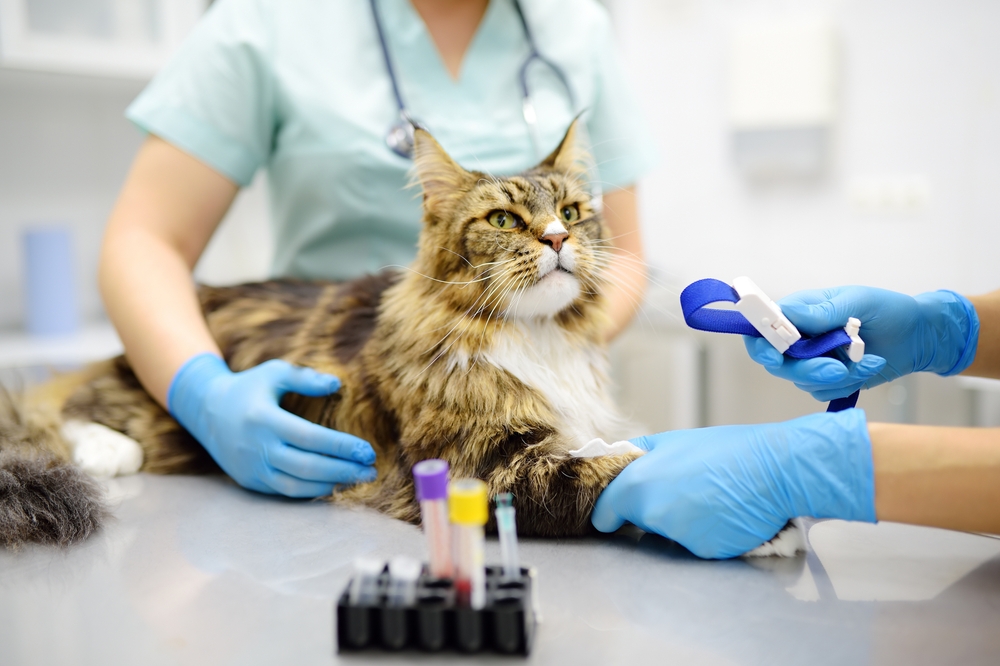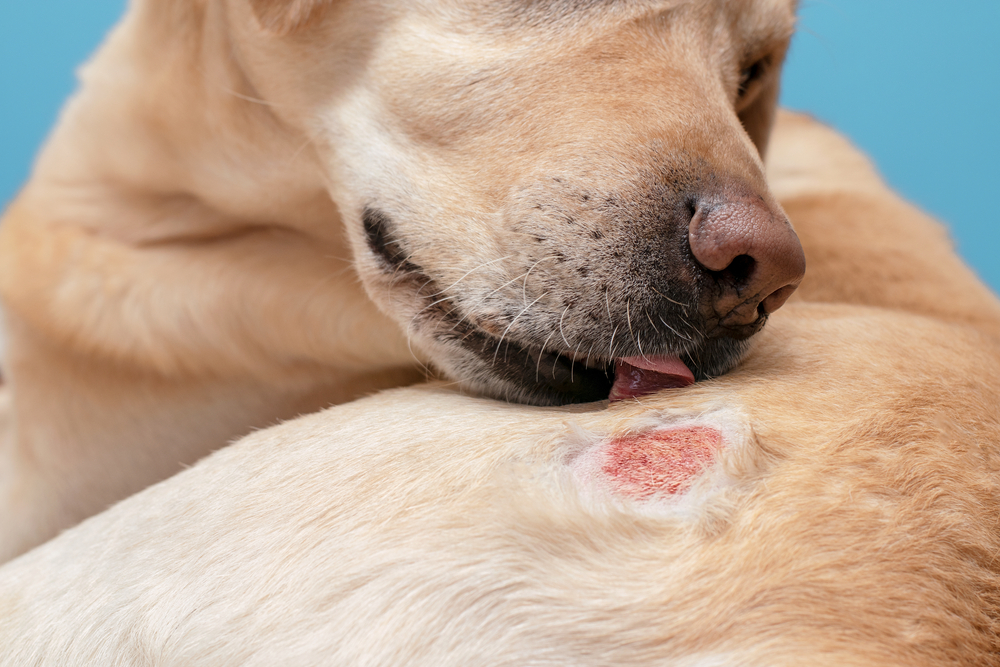If your pet has allergies, they likely are scratching their skin and biting their paws more than usual, creating redness, hot spots, and other skin disorders. While there is no cure for allergies, our Wellness Animal Hospital team can treat your pet and manage their discomfort. Pet owners need to understand what causes pet allergies and recognize the signs, so we have put together everything you need to know to help your allergic four-legged friend.
Common allergy signs in pets
Pet allergies manifest differently from humans. The most common signs in pets, which vary according to the allergy type, include. :
- Itching and scratching — Allergies in pets result in various skin conditions that lead to excessive itching, scratching, and biting the affected area. If your pet is constantly licking, chewing, or scratching at their skin and paws, they may have allergies.
- Skin redness and irritation — Redness, inflammation, or skin irritation in the form of red patches, hot spots, or raw skin areas can be directly related to allergies.
- Sneezing and runny eyes — A pet who has environmental allergies may sneeze, cough, and have watery eyes. However, before you assume these conditions are the result of allergies, your veterinarian needs to examine your pet to rule out respiratory problems.
- Ear infections — Allergies that affect your pet’s ears, leading to recurrent ear infections, manifest as itching, redness, discharge, and foul odor. Your pet will likely shake their head and paw at their ears.
- Gastrointestinal issues — Gastrointestinal (GI) problems, including vomiting, diarrhea, or excessive gas, may be seen, especially in pets with food allergies.
- Hair loss — Constant scratching because of chronic itching can cause hair loss.
- Hives and swelling — Some severe allergic reactions may manifest as hives (i.e., raised, itchy welts) or facial swelling.
Common allergy causes in pets
Cats and dogs typically suffer from one or more of the following allergies:
- Flea allergies — Fleas can trigger an allergic reaction in a pet who is sensitive to flea saliva—a single flea bite can cause intense itching and scratching. Flea allergy dermatitis (FAD) is a particularly severe reaction.
- Food allergies — Certain ingredients in your pet’s food, such as beef, chicken, dairy, wheat, or soy, can trigger allergic reactions that can manifest as skin problems, GI issues, or both.
- Environmental allergens — Pollen, mold, dust mites, dust, grasses, and other environmental allergens that affect people also affect pets, with similar signs.
- Contact allergies – These include allergic reactions to household substances, such as cleaning products, fabric dyes, or grooming products, that pets can contact.
In addition, pets, like people, can be allergic to medications, and need prompt veterinary care, especially if they react after taking a new medication.
Certain breeds, such as bulldogs, boxers, retrievers, and terriers, are predisposed to allergies.
Diagnosis and treatment for pet allergies

The first step is pinpointing the allergens that are causing the reactions, which may entail diagnostics such as allergy tests, including skin and blood tests, or a food elimination trial.
Once our team has identified the cause of your pet’s allergies, we will develop a treatment plan, which will vary according to the allergen. We likely will prescribe medications and may suggest immunotherapy (i.e., allergy shots) to gradually desensitize your pet’s immune system to environmental allergens (i.e., pollen, dust). For a pet with FAD, we will prescribe flea and tick preventives to eliminate fleas and medication to ease their itching. For food allergies, our team will recommend that your pet switch to a hypoallergenic or limited-ingredient diet. For contact allergies, prevention (i.e., ensuring all products are out of your pet’s reach) is the only solution.
At-home care should include bathing your pet with a medicated or hypoallergenic shampoo, using air purifiers to minimize airborne allergens, and regularly laundering your pet’s bed and bedding. You may also need a professional exterminator to eradicate all fleas from your home.
By understanding the signs and causes of pet allergies, you can take proactive steps and start treatment early to alleviate your pet’s discomfort and improve their quality of life. If you suspect your pet has allergies, contact our Wellness Animal Hospital team as soon as possible.







Leave A Comment